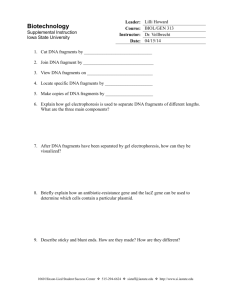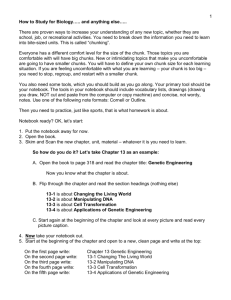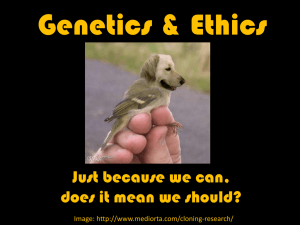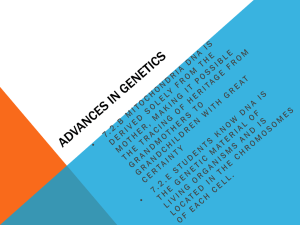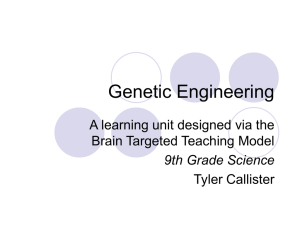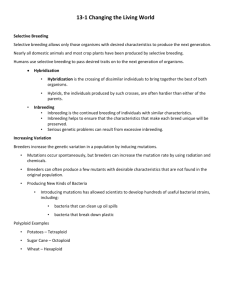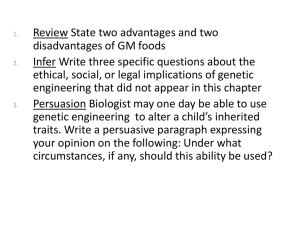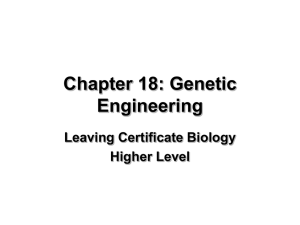AZBio Ch 13
advertisement
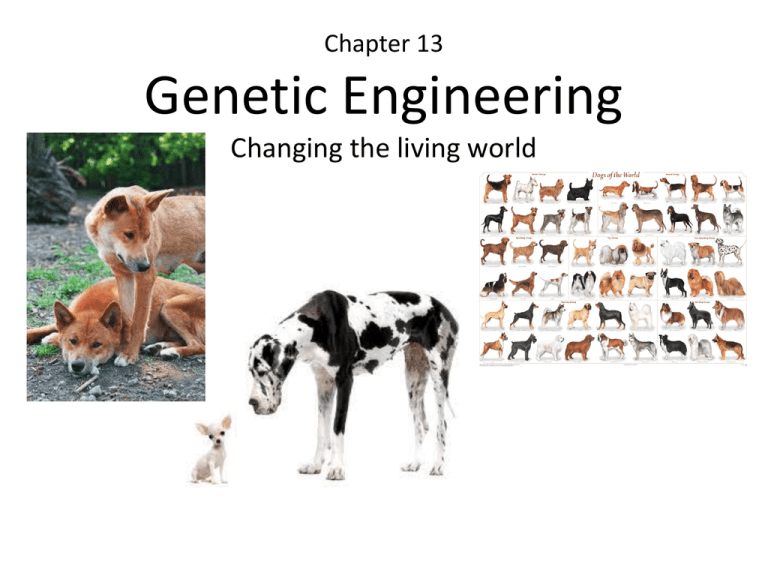
Chapter 13 Genetic Engineering Changing the living world Selective Breeding Corn is one of the earliest know species of genetic engineering. Ancient Pueblo Indians took the seeds from a native grass and saved only the largest seeds to be planted in the spring. This practice continued for thousands of years. The original plant is believed to be extinct, but the modern corn plant flourishes. Selective Breeding By allowing only those organisms with desired characteristics to produce offspring, humans have produced many different breeds. Other types of selective breeding... Hybrids – crossing two different individuals offspring often hardier than their parents Horse + Donkey = Mule Inbreeding – continued breeding of individuals with similar characteristics. Dog breeds are maintained by inbreeding, but has risks. Genetic defects can be expressed by recessive alleles Increasing variation – introducing mutations can increase diversity Radiation and chemicals can cause mutations DNA extraction Gel Electrophoresis •Enzymes cut DNA into fragments •DNA fragments are poured onto a gel •Electric voltage moves the DNA fragments across the gel •Because longer segments move across the gel more slowly, and do not go as far •Based on size, the DNA fragments make a pattern of bands on the gel Cell Transformation During transformation, a cell takes in DNA from outside the cell, and becomes part of the cell’s DNA. The foreign DNA is first joined to a small, circular DNA known as a plasmid. Plasmids are found naturally in some bacteria and have been very useful for DNA transfer. Why? The plasmid has a genetic “marker”... a gene to distinguish which bacteria carry the foreign DNA. How? We use genes for antibiotic resistance as markers! Applications of Genetic Engineering Genes responsible for making fireflies glow are inserted into a plant Transgenic organisms – contain DNA from different organisms This demonstrates how closely related we all are! Genetic engineering has spurred the growth of biotechnology, a new industry that is changing the way we interact with the living world Mice produced with human genes that simulate our immune system. This allows us to study human diseases. Cloning Dolly 1997 The first mammal cloned from an adult cell Cloning pets? The first commercially cloned pet was a cat named “Little Nicky” in 2004 Can you really have a beloved pet back? See text p. 332
